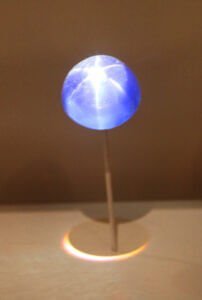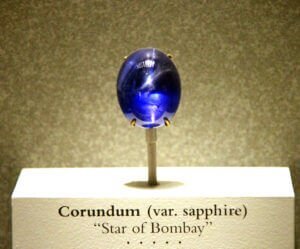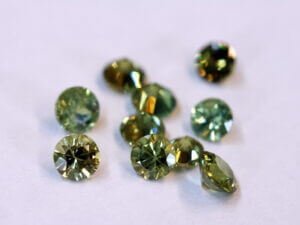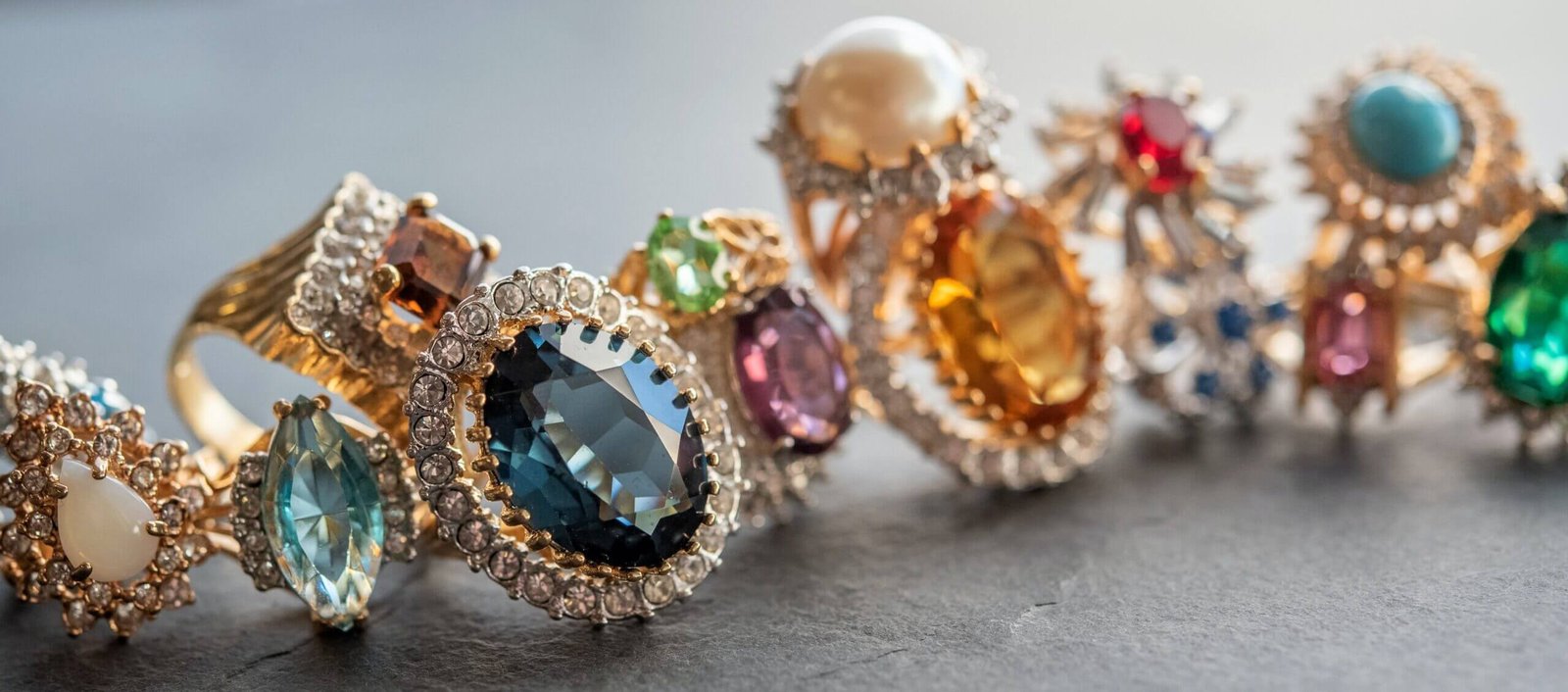Are Star Sapphires Real Gems?
Are Star Sapphires Real Gems? Have you ever wondered if star sapphires are truly genuine gems? With their mesmerizing star-like effect shimmering across their surface, these enchanting stones have captivated jewelry enthusiasts for centuries. In this article, we will explore the world of star sapphires and unveil the truth behind their authenticity, revealing whether they are indeed real gems or simply imitations. So fasten your seatbelt and get ready to embark on a fascinating journey into the realm of star sapphires.

What are Star Sapphires?
Definition
Star Sapphires are a unique variety of the mineral corundum, which is composed of aluminum oxide. They are known for their mesmerizing optical phenomenon called asterism, which creates a star-like pattern on the surface of the gemstone. These gemstones are highly valued and cherished for their beauty, rarity, and symbolism.
Formation
Star Sapphires are formed under specific conditions of extreme heat and pressure deep within the Earth’s crust over millions of years. During their formation, the corundum crystal structure aligns in a way that produces needle-like inclusions called rutile, also known as “silk.” These fine needle inclusions intersect to form a six-rayed star when viewed under a concentrated light source. The angle and position of the inclusions determine the quality and clarity of the star pattern.
Characteristics of Star Sapphires
Phenomenon of Asterism
The mesmerizing feature of star sapphires is their asterism, which is the appearance of a star-shaped pattern on the surface of the gemstone. This phenomenon is caused by the reflection and diffraction of light by the needle-like inclusions of rutile within the stone. The star pattern often consists of six rays, but sometimes it can exhibit four or twelve rays depending on the crystal structure and alignment of the rutile inclusions.
Color and Transparency
Star Sapphires come in a wide range of colors, including blue, black, pink, and yellow. The color intensity varies depending on the presence of certain trace elements, such as iron, titanium, and chromium. Blue star sapphires are the most sought-after, with shades ranging from light to deep blue. The transparency of star sapphires can vary from translucent to opaque, with some stones exhibiting phenomenal transparency despite the presence of asterism.
Cut and Shape
The cut and shape of a star sapphire greatly influence its overall beauty and the visibility of the star pattern. Star sapphires are commonly cut in cabochon style to maximize the visibility of the asterism. This shape features a smooth, convex top and a flat or slightly domed bottom. The cabochon cut allows the star pattern to be perfectly centered and prominent. However, star sapphires can also be found in various other shapes, such as round, oval, and cushion, depending on the rough material and the lapidary’s expertise.

Types of Star Sapphires
Black Star Sapphires
black star sapphires are known for their mysterious beauty. They exhibit a striking white or silver star against a deep black or dark blue background. The contrast between the star and the dark base color creates an enchanting and ethereal effect. Black star sapphires are highly valued for their elegance and go well with both casual and formal settings.
Blue Star Sapphires
Blue star sapphires are the most popular and traditional type of star sapphire. Their captivating blue color, combined with the mesmerizing star pattern, makes them incredibly desirable. The blue color can range from pale sky blue to intense royal blue, each with its unique charm. Blue star sapphires are often associated with wisdom, truth, and royalty.
Pink Star Sapphires
Pink star sapphires exude femininity, elegance, and grace. They are cherished for their soft, delicate hue and stunning star phenomenon. Ranging from light pink to vibrant magenta, these gemstones are often associated with love, beauty, and compassion. Pink star sapphires make eye-catching centerpieces in jewelry.
Yellow Star Sapphires
Yellow star sapphires are known for their warm and radiant glow. These gemstones feature a dazzling golden to sunny yellow hue combined with the mesmerizing star pattern. Yellow star sapphires are associated with positivity, energy, and creativity. Their vibrant color makes them stand out beautifully in jewelry pieces.
Star Sapphire Evaluation
Color Intensity
The color intensity of a star sapphire is an important factor in determining its value and beauty. For blue star sapphires, a deep and vibrant blue color is considered highly desirable. Pink star sapphires are appreciated for their delicate, yet intense pink hue. In yellow star sapphires, a rich and vivid yellow color is highly sought after. The presence of asterism should complement and enhance the overall color of the gemstone.
Clarity and Transparency
The clarity and transparency of a star sapphire greatly impact its value and appearance. While some inclusions are acceptable and can contribute to the star formation, excessive and visible flaws can hinder the visibility and overall beauty of the gemstone. Star sapphires with high transparency and minimal blemishes are considered more valuable.
Star Quality
The quality of the star pattern itself is a crucial factor in evaluating star sapphires. The star should be sharp, distinct, and centered on the surface of the gemstone. Straight, evenly spaced, and unbroken rays enhance the overall appeal. The brightness and visibility of the star under different lighting conditions also contribute to the gemstone’s quality.
Size and Carat Weight
The size and carat weight of a star sapphire can affect its value and rarity. Larger star sapphires are generally more valuable and sought after. However, it’s important to note that the quality of the star pattern and the gem’s overall beauty should also be taken into consideration when evaluating its worth.

Star Sapphire Sources
Kashmir
Kashmir, located in the Himalayan region, is renowned for producing some of the world’s most exquisite star sapphires. These gemstones are prized for their intense blue color, exceptional transparency, and distinct asterism. Kashmir star sapphires are considered incredibly rare and highly valuable.
Burma
Burma, now known as Myanmar, is another prominent source of star sapphires. Burmese star sapphires are highly regarded for their vibrant blue color and exceptional clarity. The star pattern in these sapphires is renowned for its sharpness and brightness.
Sri Lanka
Sri Lanka, also known as Ceylon, has a long history of producing high-quality star sapphires. Sri Lankan star sapphires are renowned for their variety of colors, including blue, pink, and yellow. These gemstones often exhibit a well-defined and centered star pattern, making them sought after by gem enthusiasts.
Madagascar
Madagascar has emerged as a significant source of star sapphires in recent years. The star sapphires from Madagascar display a wide range of colors, including blue, pink, and yellow-green. These gemstones possess a stunning star formation and exceptional transparency, making them highly desirable.
Australia
Australia, particularly the state of Queensland, is known for producing black star sapphires. These gemstones are highly regarded for their sharp and well-defined white or silver star against a dark background. Australian black star sapphires are popular for their unique beauty and are often used in jewelry designs.
Value and Rarity of Star Sapphires
Factors Affecting Value
Several factors contribute to the value of star sapphires. The main factors include color intensity, clarity, star quality, size, and origin. Additionally, the Overall desirability of star sapphires in the market also affects their value. Rarity, exceptional beauty, and demand among collectors can significantly impact the price of star sapphires.
Pricing
The pricing of star sapphires can vary greatly depending on their quality, size, and origin. Fine quality blue star sapphires, especially those from Kashmir, can command high prices in the market. Black star sapphires and some colored varieties, such as pink and yellow, may be relatively more affordable, but still valued for their unique beauty.
Rarity and Availability
star sapphires are considered relatively rare compared to regular sapphires. The natural occurrence of the asterism phenomenon in corundum is less common, making star sapphires highly sought after by gem enthusiasts and collectors. The availability of star sapphires depends on the specific sources and the quantity of high-quality rough material being mined.
Famous Star Sapphires
Throughout history, several star sapphires have gained fame and recognition. One such example is the Star of India, a 563.35-carat grayish-blue star sapphire renowned for its impressive size and rich history. Another famous star sapphire is the Logan Sapphire, a 423-carat deep blue gemstone displayed at the Smithsonian Institution. These exceptional gemstones showcase the allure and beauty of star sapphires.

Care and Maintenance of Star Sapphires
Cleaning Guidelines
To keep your star sapphires looking their best, clean them regularly using mild soapy water and a soft-bristled brush. Avoid using harsh chemicals or ultrasonic cleaners, as they can damage the gemstone’s surface or loosen the star pattern. After cleaning, rinse the gemstone thoroughly and dry it gently with a clean, soft cloth.
Storage Tips
When not being worn, store your star sapphires separately from other jewelry pieces to prevent scratches or damage. It is best to keep them in a lined jewelry box or a soft pouch to protect them from dust and light exposure. Avoid storing them in direct sunlight or extreme temperature conditions.
Avoiding Damage
As star sapphires are relatively hard gemstones, they are less susceptible to scratches and damage. However, they can still chip or crack if subjected to rough handling or sharp impacts. It’s advisable to remove your star sapphire jewelry before engaging in activities that may potentially damage the gemstone, such as sports or heavy labor.
Professional Maintenance
Periodic professional maintenance by a trusted and experienced jeweler is recommended to ensure the longevity and beauty of your star sapphires. A skilled jeweler can inspect and clean your gemstone, check for any signs of damage or wear, and provide suitable repair and maintenance services if needed.
Distinguishing Star Sapphires from Other Gems
Differences from Regular Sapphires
star sapphires can be distinguished from regular sapphires by the presence of the star pattern, known as asterism. Regular sapphires are known for their exceptional color and clarity but lack the unique optical phenomenon seen in star sapphires. The skillful cutting and shaping of star sapphires also differentiate them from regular sapphires.
Similar Gemstones with Asterism
While star sapphires are the most well-known gemstones with asterism, there are other gemstones that can exhibit this optical phenomenon. Star rubies, star diopside, and star garnets are a few examples of gemstones that can also display asterism. However, star sapphires remain the most sought after and esteemed due to their exceptional beauty and cultural significance.
Historical Significance of Star Sapphires
Cultural Beliefs and Symbolism
Throughout history, star sapphires have held significant cultural and metaphysical symbolism. In ancient times, it was believed that star sapphires possessed powerful protective qualities and could bring good fortune and prosperity to their wearers. They were often associated with celestial energies and considered a symbol of divine guidance and wisdom.
Famous Star Sapphire Jewelry
Star sapphires have adorned some of the most renowned and significant jewelry pieces throughout history. The Stuart Sapphire, a 104-carat blue star sapphire, is part of the British Crown Jewels and has a fascinating royal history. The Midnight Star, a 116-carat black star sapphire, is another notable gemstone displayed at the American Museum of Natural History. These remarkable jewels exemplify the grandeur and allure of star sapphires in high jewelry.
Buying and Caring for Star Sapphires
Choosing the Right Star Sapphire
When selecting a star sapphire, consider factors such as color intensity, clarity, star pattern quality, size, and personal preferences. It is advisable to choose a gemstone that resonates with your individual style and taste. Seeking the assistance of a reputable and knowledgeable jeweler can help you find the perfect star sapphire that meets your requirements. Which Finger Do You Wear Black Sapphire Ring On?
Authenticity and Certification
To ensure the authenticity and quality of a star sapphire, it is important to purchase from reputable sources and request proper certification. Gemological laboratories, such as the Gemological Institute of America (GIA) and the American Gemological Laboratories (AGL), provide certified reports that verify the authenticity, origin, and quality of the gemstone.
Appropriate Settings and Designs
When designing jewelry with star sapphires, it’s essential to consider the gemstone’s unique features and aesthetics. The cabochon cut is the most popular and traditional choice for star sapphires, as it highlights the star pattern. However, star sapphires can also be set in various other jewelry styles, such as rings, earrings, pendants, and bracelets, allowing for creativity and personalization.
In conclusion, star sapphires are remarkable and captivating gemstones that possess a unique optical phenomenon. Their exquisite beauty, rarity, and cultural significance make them highly sought after by gem enthusiasts and collectors worldwide. Understanding their characteristics, evaluation criteria, and care guidelines ensures that these magnificent gemstones can be appreciated and cherished for generations to come. Whether you choose a blue, black, pink, or yellow star sapphire, the mesmerizing star pattern will undoubtedly add a touch of enchantment and elegance to your jewelry collection.



